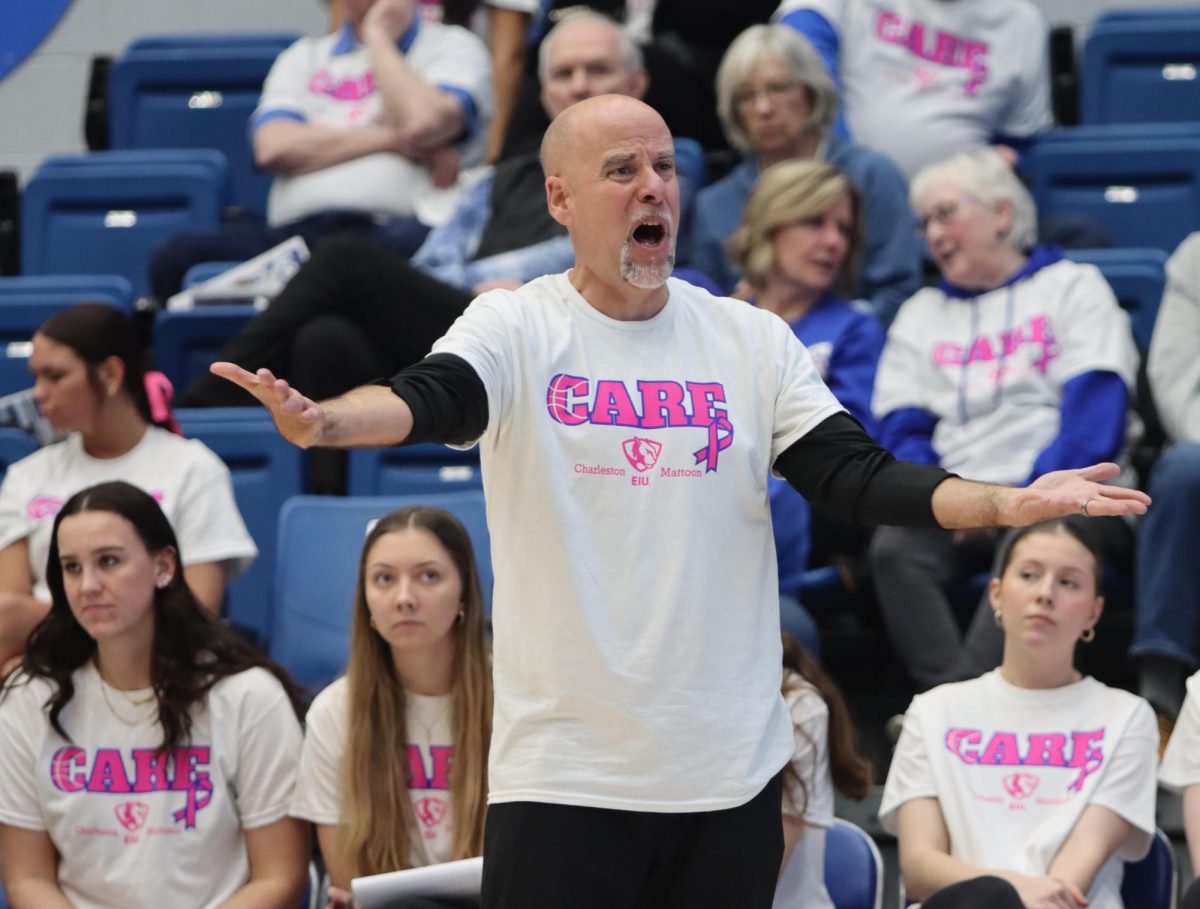Running Independent
Freshman Chris Kromphardt is betting his Eastern political career on his opinion that students care more about the person running for office than they care about party affiliations. Unlike most of his incumbents who are running for senator positions in Eastern’s Student Government under a party name, Kromphardt is running as an independent.
The two parties running against each other this semester are Student United Party with Sean Anderson running as its Presidential candidate and United University Party, whose presidential candidate is Jillian Ruddy.
Candidates running for executive positions this semester have campaigned around campus by visiting several Recognized Student Organizations, hanging fliers and being endorsed by The Daily Eastern News. (For a summary list of these candidates see page 4)
The senators running on party tickets have not been as visible.
Why run as Independent?
“I don’t really like the party system,” Kromphardt said. “You’ve got the people running for the office, you see their pictures on campus … You see those people, but you don’t see whoever else is running under the party ticket.”
Kromphardt mentioned it seems the parties are only used during student elections, and he is right. In the Aug. 25 edition of the Daily Eastern News in an article titled “Student Government parties not important after elections,” Student Body President Ryan Berger said just that.
“I would say that (parties) play no role (after the election),” he said. “Just because somebody ran with me doesn’t me that they’re going to agree with me and pass what I want.”
The reason Student Government uses the party system is because candidates get more votes as a whole when they run as a party compared to individually, Berger said.
Kromphart thinks the system is detrimental to the students because they are voting for people they do not know.
“It just seems like the party system impersonalizes the whole election,” he said. “You don’t know who you’re voting for unless you know them personally.”
This is why Kromphardt decided to not affiliate himself with a specific party.
“By putting my name out there, (students) can see a little bit about me and can know if they want to vote for me,” he said. “They can make more of a conscious decision on whether to vote for me, as opposed to a party identification.”
Why should students vote for you?
Kromphardt decided to run for office at the recommendation of current senator Ben Marcy. He said he feels qualified for a senator position because, as a freshman, he is very involved on campus.
“Well, I’m active in quite a few things so I think I can represent eastern students,” he said. “I know what a lot of them go through between balancing work, student involvement and staying on top of grades.”
Kromphart is the vice president of Eastern’s scholastic group, has played intramural dodgeball and football, is a member of the College Democrats, has participated in Moot Court through the Political Science department, works at Steak ‘n Shake in Mattoon on the weekends and is a presidential scholar.
He describes himself as being a realist.
“I can look realistically at the problems and say: is this going to work, is this worth the money, time, manpower that we’re putting in to it, is it in the best interest of the students?” he said.
He also said he understands the regular issues students care about.
“I can relate to them,” he said. “I know what (they) are going through. I’m not necessarily sure if the parties can say the same thing because they’re concerned about this party image and getting as many people elected from their party.”
If elected, what are your goals?
“It may seem kinda trite, but making eastern the best place it can be,” he said. “If I can relate to students, and it doesn’t seem like it’s in the best interest of the students, why would I want to vote on that?”
About RSO funding, Kromphardt was hesitant to reject it out of hand. He commented that at last week’s debates both parties endorsed RSO funding but did not seem to have a well thought-out plan on how to implement it.
“I’m not saying that I’m against RSO funding,” he said. “It seems like a lot of RSOs could bring more activities that would interest, benefit students, but that’s not necessarily the case with every RSO.”
His idea is to set up a committee where an RSO would present a funding proposal. The committee would then evaluate the proposal and grant funding dependant of its worth to the students.
“Just like a regular government, if an agency wants money for a project they submit a proposal,” he said.
Closing remarks?
Kromphardt’s biggest concern is how the partisan system seems to impersonalize the elections.
As a solution, he suggested Student Government could revise the partisan system by having candidates run as several smaller parties with expertise in specific areas as opposed to large parties with broad interests like school spirit or campus safety.
“It’s just a name attached to a party, and I don’t know how that benefits anyone,” he said.












































